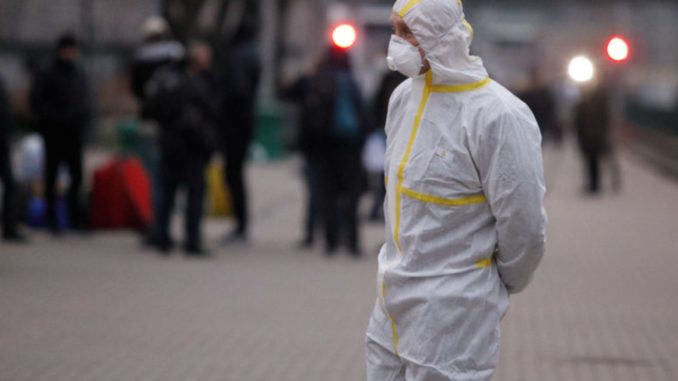
According to a general practitioner, Vilnius University professor Vytautas Kasiulevičius, it is likely that if the following measures are employed, if the temperature reaches at least 15 degrees and humidity increases, in the first days of April, the number of infected by COVID-19 in the country will not exceed 500 patients and no more than 45 of them will be treated in intensive care. This will allow considering the softening of certain restrictions in order to reduce economic loss.
- Complete border and airspace control, only air, sea and land goods transport movement from and into the country’s territory.
- Social distance – 2 meters, maintaining personal hygiene (washing hands, wearing a mask given symptoms, cough and sneezing etiquette).
- No gatherings, culture, sports and teaching activities outside of work consultations of no more than ten people, while maintaining at least a 1-meter distance between individuals.
- All citizens returning from foreign countries over the past two weeks should self-isolate at home. Any respiratory tract infection during this period is interpreted as COVID-19 and is immediately inspected as per the Ministry of Healthcare’s algorithms. The highest likelihood of infection is the first seven days.
- Healthcare staff protection is a priority in ensuring the healthcare system’s resilience to COVID-19. All those working in it must have available all necessary protective measures, including FFP2 or FFP3 respirators, gloves, face protection and special wear. All healthcare staff working with potentially infected patients, regardless of symptoms, must be tested every 7 days with a PGR sample. Lithuania currently needs at least 100 thousand individual protection sets, which include the equipment above, including no lower than FFP2 class (preferably FFP3) respirators.
- Molecular diagnostics (PGR) testing capacities must exceed 500 tests per day up to the end of the outbreak, prioritising risk groups – those, who have been in foreign countries, their family members and close contacts. The testing of all those with fevers as per the PGR method, seeking to uncover COVID-19 must be performed on individuals older than 60 years of age, also those with the four chronic diseases (chronic obstructive pulmonary disease, hypertension, coronary heart disease, diabetes).
V. Kasiulevičius believes that the largest risk of the infection outbreak and worst-case scenario in the country is linked to the behaviour of those returning from abroad over the next two weeks. Thus, he calls on everyone to be civic.


Be the first to comment